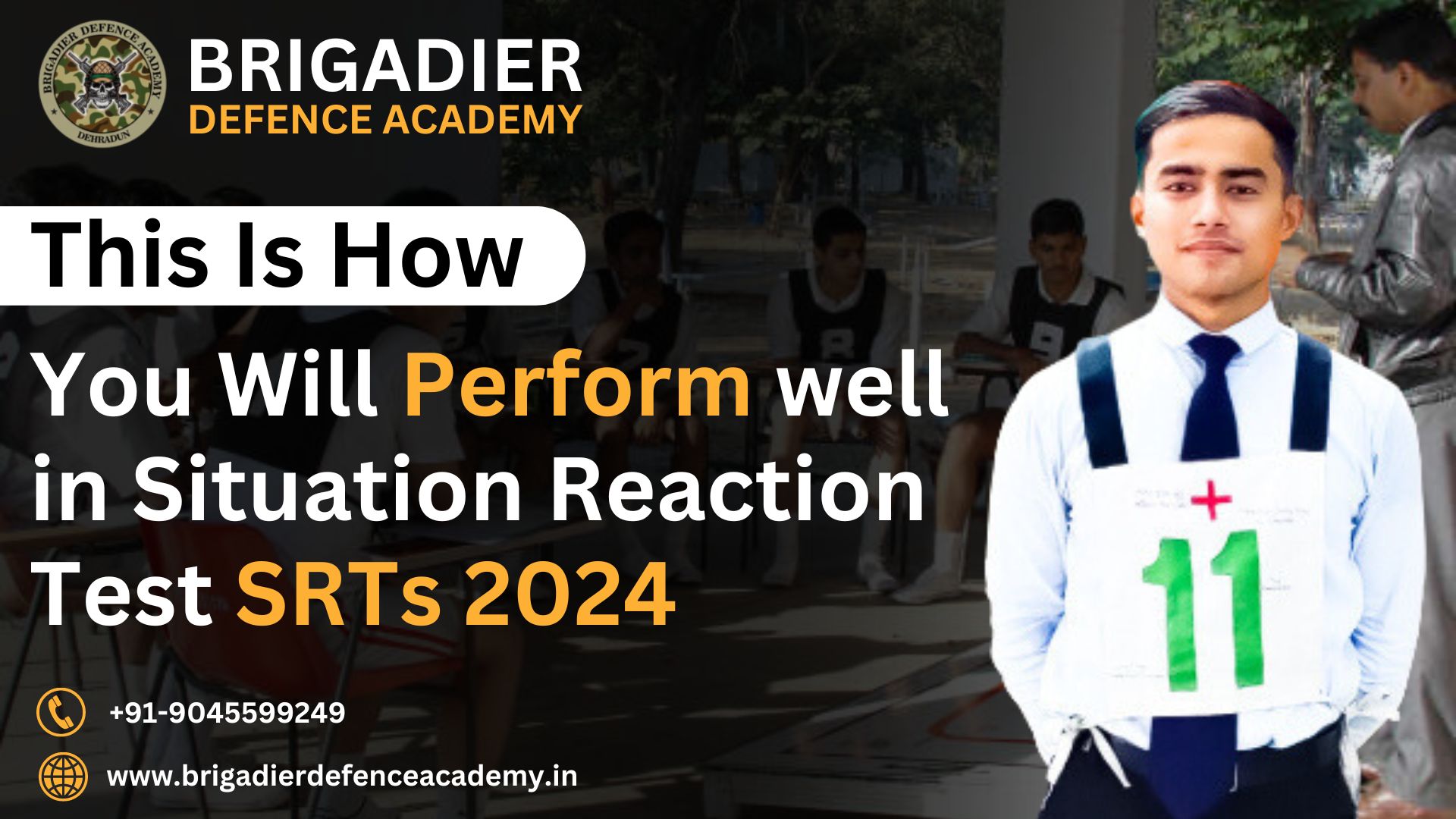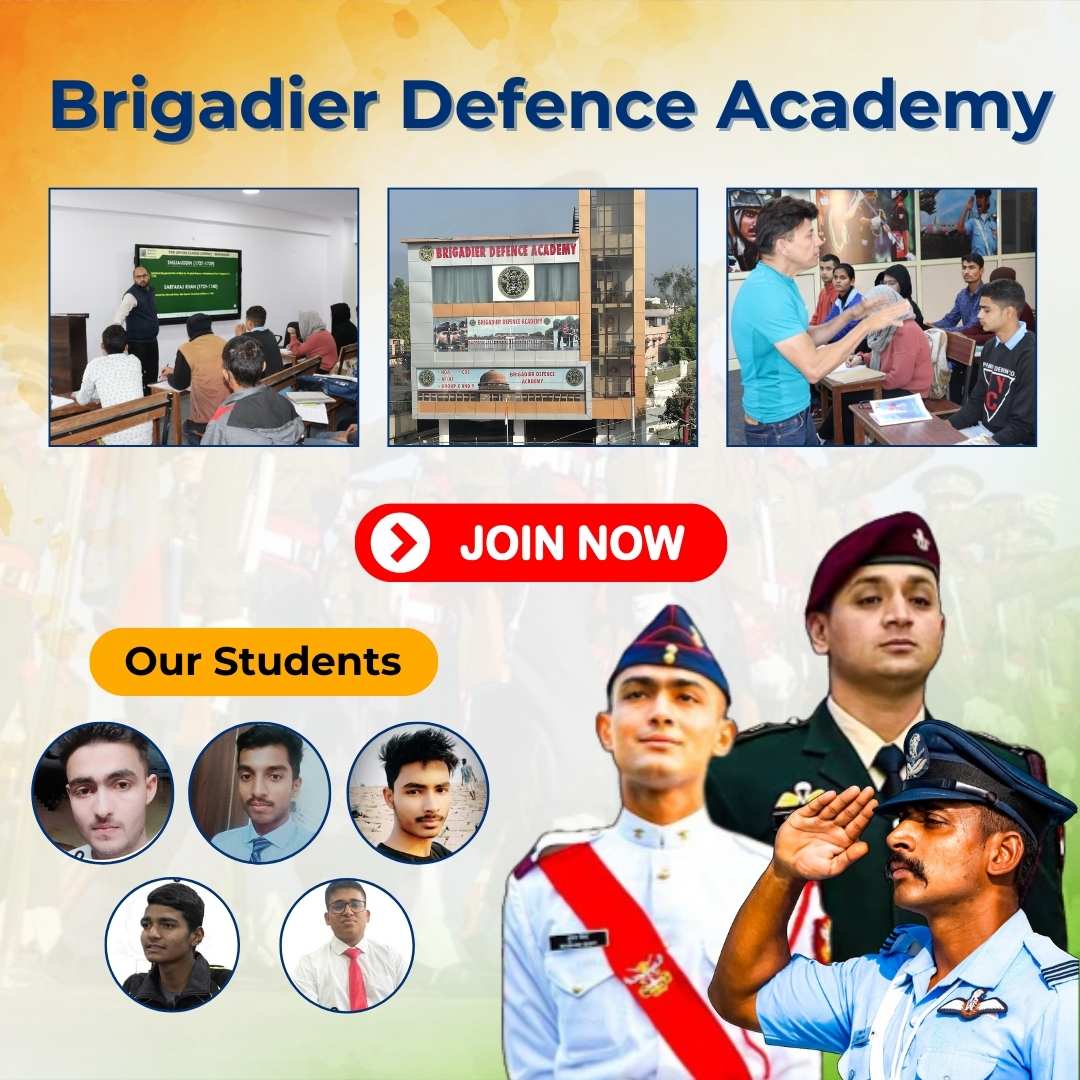Introduction of Situation Reaction Test SRTs
A Situation Reaction Test (SRT) is a psychological assessment tool that evaluates an individual’s response to various real-life scenarios. These tests are commonly used in recruitment processes, especially in fields that require quick decision-making and problem-solving skills, such as the military, law enforcement, and emergency services. Excelling in an SRT requires a combination of critical thinking, situational awareness, and effective communication skills. In this comprehensive guide, we will explore strategies and tips to help you perform well in an SRT.
Understanding the Structure of SRTs:
Before delving into specific strategies, it’s crucial to understand the typical structure of an SRT. These tests consist of multiple scenarios or situations presented in written or audio format. Each scenario is followed by a set of possible reactions or actions that you must rank based on their appropriateness. The objective is to select the most effective or suitable response given the context of each situation.
Key Strategies for SRTs Success:
- Read Carefully: Pay close attention to the details provided in each scenario. Understand the situation, the individuals involved, and any relevant background information.
- Prioritize Responses: Situation Reaction Test often require you to rank responses from most effective to least effective. Consider the consequences of each action and prioritize based on ethical, practical, and logical reasoning.
- Stay Calm and Focused: Situation Reaction Test are designed to assess your ability to handle pressure. Maintain a calm and composed mindset while analyzing and responding to each scenario. Avoid rushing through the test.
- Use Logic and Common Sense: Apply logical reasoning and common sense to evaluate the potential outcomes of each response. Avoid extreme or unrealistic reactions unless explicitly indicated in the scenario.
- Consider Ethical Implications: Many SRT scenarios involve ethical dilemmas. Assess the ethical implications of each response and prioritize actions that align with ethical standards and professional conduct.
- Practice Time Management: Situation Reaction Test often have a time limit. Practice time management during your preparation to ensure you can complete all scenarios within the allocated time. Pace yourself accordingly.
- Review Sample Questions: Familiarize yourself with the types of scenarios and responses commonly found in SRTs. Reviewing sample questions can help you understand the format and prepare effectively.
- Seek Feedback: If possible, seek feedback from professionals or mentors who have experience with Situation Reaction Test . They can provide valuable insights and guidance based on their expertise.
Tips for Effective Preparation:
- Practice Regularly: Consistent practice is key to improving your performance in Situation Reaction Test . Utilize online resources, practice books, and mock tests to hone your skills.
- Simulate Test Conditions: When practicing, simulate test conditions as closely as possible. Create a quiet environment, set a timer, and adhere to the time constraints to mimic the actual test experience.
- Work on Decision-Making Skills: Enhance your decision-making abilities by analyzing real-life scenarios encountered in your daily life or professional environment. Reflect on the outcomes of your decisions and identify areas for improvement.
- Expand Your Knowledge: SRTs often cover a wide range of topics, including interpersonal interactions, crisis management, leadership, and problem-solving. Stay informed and broaden your knowledge base to be better prepared for diverse scenarios.
- Stay Updated: Stay updated on current events and developments relevant to the field or industry for which you are preparing. This awareness can help you contextualize scenarios and make informed decisions.
- Collaborate and Discuss: Engage in discussions with peers or mentors who are also preparing for SRTs. Collaborative learning can provide different perspectives and strategies for tackling various scenarios.
- Review and Learn from Mistakes: After completing practice tests or mock scenarios, review your responses and analyze any mistakes or areas of improvement. Learn from these experiences to refine your approach.
Conclusion:
Mastering the Situation Reaction Test requires a combination of analytical thinking, ethical reasoning, and effective decision-making skills. By understanding the structure of the test, practicing regularly, and adopting strategic approaches, you can enhance your performance and increase your chances of success. Remember to stay calm, focused, and methodical while tackling each scenario, and approach the test with confidence in your abilities.
FAQs
1. What is a Situation Reaction Test (SRT)?
- A Situation Reaction Test is a psychological assessment tool used to evaluate an individual’s response to various real-life scenarios. It is commonly employed in recruitment processes to assess decision-making, problem-solving, and situational awareness skills.
2. What types of scenarios are typically included in an SRT?
- SRTs can include a wide range of scenarios, such as interpersonal conflicts, emergency situations, ethical dilemmas, leadership challenges, and crisis management scenarios. These scenarios are designed to test how individuals handle different situations under pressure.
3. How are SRTs administered?
- SRTs can be administered in written or audio format. In written SRTs, candidates are presented with a scenario followed by multiple-choice or ranking-style questions regarding possible responses. In audio SRTs, candidates listen to a scenario and then respond orally or in writing.
4. What skills are assessed in an SRT?
- SRTs assess various skills, including:
- Decision-making: Ability to make timely and effective decisions in different situations.
- Problem-solving: Capacity to analyze problems and generate solutions.
- Critical thinking: Evaluating information and making reasoned judgments.
- Emotional intelligence: Understanding and managing emotions in interpersonal interactions.
- Ethical reasoning: Considering ethical implications and making ethical decisions.
- Leadership potential: Demonstrating leadership qualities and skills.
5. How can I prepare for an SRT?
- Preparation for an SRT involves several strategies:
- Practice regularly with mock tests and sample scenarios to familiarize yourself with the format and types of questions.
- Work on improving decision-making, problem-solving, and critical thinking skills through real-life scenarios and case studies.
- Stay updated on current events and developments relevant to the field or industry for which you are preparing.
- Seek feedback from mentors or professionals experienced in SRTs to gain insights and improve your approach.
6. What are some tips for performing well in an SRT?
- Some tips for excelling in an SRT include:
- Read each scenario carefully and understand all relevant details.
- Prioritize responses based on their effectiveness and appropriateness in the given situation.
- Stay calm, focused, and methodical while analyzing and responding to scenarios.
- Consider the ethical implications of each response and prioritize ethical decision-making.
- Practice time management to ensure you complete all scenarios within the allocated time.
- Review and learn from your mistakes during practice sessions to improve your performance.
7. How important are Situation Reaction Test in the recruitment process?
- SRTs are often an integral part of the recruitment process, especially for roles that require quick decision-making, crisis management, leadership, and problem-solving skills. Employers use SRTs to assess candidates’ ability to handle various situations effectively, making them important indicators of a candidate’s suitability for certain roles.
8. Can I improve my performance in SRTs through practice?
- Yes, consistent practice and strategic preparation can significantly improve your performance in SRTs. By practicing with mock tests, reviewing sample scenarios, and honing relevant skills, you can enhance your ability to handle different situations and make informed decisions during an SRT.
9. Are there any resources available for SRT preparation?
- Yes, there are several resources available for SRT preparation, including online practice tests, study guides, books on situational judgment, and courses specifically designed to improve decision-making and problem-solving skills. Additionally, seeking guidance from professionals or mentors can also be beneficial.
10. What should I focus on during an SRT?
- During an SRT, focus on understanding the scenario, prioritizing responses based on effectiveness and ethical considerations, maintaining a calm and composed demeanor, and demonstrating your ability to make reasoned and practical decisions in challenging situations.







